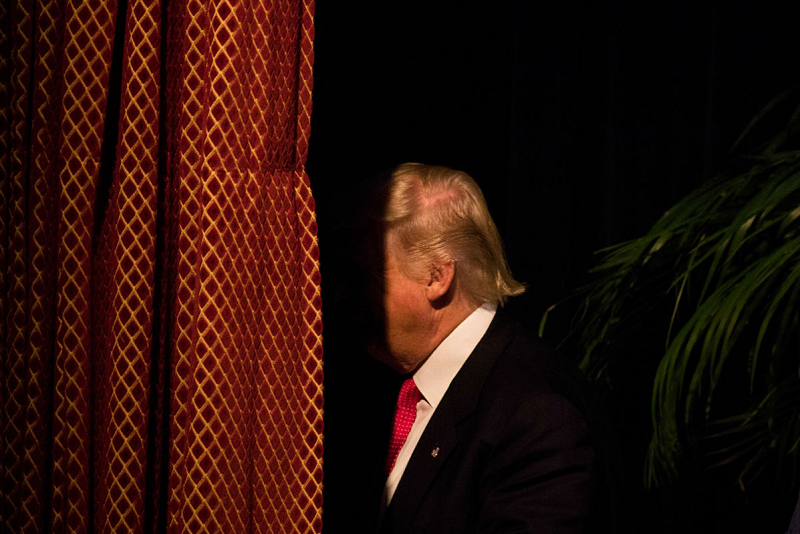BROWSE BY TOPIC
- Bad Brokers
- Compliance Concepts
- Investor Protection
- Investments - Unsuitable
- Investments - Strategies
- Investments - Private
- Features/Scandals
- Companies
- Technology/Internet
- Rules & Regulations
- Crimes
- Investments
- Bad Advisors
- Boiler Rooms
- Hirings/Transitions
- Terminations/Cost Cutting
- Regulators
- Wall Street News
- General News
- Donald Trump & Co.
- Lawsuits/Arbitrations
- Regulatory Sanctions
- Big Banks
- People
TRENDING TAGS
Stories of Interest
- Sarah ten Siethoff is New Associate Director of SEC Investment Management Rulemaking Office
- Catherine Keating Appointed CEO of BNY Mellon Wealth Management
- Credit Suisse to Pay $47Mn to Resolve DOJ Asia Probe
- SEC Chair Clayton Goes 'Hat in Hand' Before Congress on 2019 Budget Request
- SEC's Opening Remarks to the Elder Justice Coordinating Council
- Massachusetts Jury Convicts CA Attorney of Securities Fraud
- Deutsche Bank Says 3 Senior Investment Bankers to Leave Firm
- World’s Biggest Hedge Fund Reportedly ‘Bearish On Financial Assets’
- SEC Fines Constant Contact, Popular Email Marketer, for Overstating Subscriber Numbers
- SocGen Agrees to Pay $1.3 Billion to End Libya, Libor Probes
- Cryptocurrency Exchange Bitfinex Briefly Halts Trading After Cyber Attack
- SEC Names Valerie Szczepanik Senior Advisor for Digital Assets and Innovation
- SEC Modernizes Delivery of Fund Reports, Seeks Public Feedback on Improving Fund Disclosure
- NYSE Says SEC Plan to Limit Exchange Rebates Would Hurt Investors
- Deutsche Bank faces another challenge with Fed stress test
- Former JPMorgan Broker Files racial discrimination suit against company
- $3.3Mn Winning Bid for Lunch with Warren Buffett
- Julie Erhardt is SEC's New Acting Chief Risk Officer
- Chyhe Becker is SEC's New Acting Chief Economist, Acting Director of Economic and Risk Analysis Division
- Getting a Handle on Virtual Currencies - FINRA
ABOUT FINANCIALISH
We seek to provide information, insights and direction that may enable the Financial Community to effectively and efficiently operate in a regulatory risk-free environment by curating content from all over the web.
Stay Informed with the latest fanancialish news.
SUBSCRIBE FOR
NEWSLETTERS & ALERTS
Why Trump's Staff Is Lying - Commentary
[Photo: by Damon Winter for the NYTimes / New Yorker]
One of the most striking features of the early Trump administration has been its political uses of lying. The big weekend story was the obviously false claim of Donald Trump’s press secretary, Sean Spicer, that Trump pulled in the largest inauguration crowds in American history. This raises the question of why a leader might find it advantageous to promote such lies from his subordinates.
First and most obviously, the leader wishes to mislead the public, and wants to have subordinates doing so, in part because many citizens won’t pursue fact-checking. But that’s the obvious explanation, and the truth runs much deeper.
By requiring subordinates to speak untruths, …
- a leader can undercut their independent standing, including their standing with the public, with the media and with other members of the administration. That makes those individuals grow more dependent on the leader and less likely to mount independent rebellions against the structure of command. Promoting such chains of lies is a classic tactic when a leader distrusts his subordinates and expects to continue to distrust them in the future.
- a leader can ascertain if someone is truly loyal to you – what economists sometimes call loyalty filters. Ask them to do something outrageous or stupid - if they balk, then you know right away they aren’t fully with you. That too is a sign of incipient mistrust within the ruling clique, and it is part of the same worldview that leads Trump to rely so heavily on family members.
In this view, loyalty tests are especially frequent for new hires and at the beginning of new regimes, when the least is known about the propensities of subordinates. You don’t have to view President Trump as necessarily making a lot of complicated calculations, rather he may simply be replicating tactics that he found useful in his earlier business and media careers.
As far as Trump’s lies and untruths, … many of Trump’s supporters, with some justification, see him as a man willing to voice important truths. If Trump’s opponents don’t understand that reality, and the sociological differences between various kinds of misdirection, they are going to underestimate his appeal and self-righteously underestimate how much they are themselves mistrusted by the public.
Trump specializes in lower-status lies, typically more of the bald-faced sort, namely stating “x” when obviously “not x” is the case. They are proclamations of power, and signals that the opinions of mainstream media and political opponents will be disregarded. The lie needs to be understood as more than just the lie. These lower-status lies are also a short-run strategy. They represent a belief that a lot can be pushed through fairly quickly, bundled with some obfuscation of the truth, and that long-term credibility does not need to be maintained.
So the overall picture is this: The Trump administration trusts neither its own appointees nor its own supporters, and is creating a situation where that lack of trust is reciprocal. That is of all things a strategy for getting things done, and these first one hundred days are going to be a doozy.





